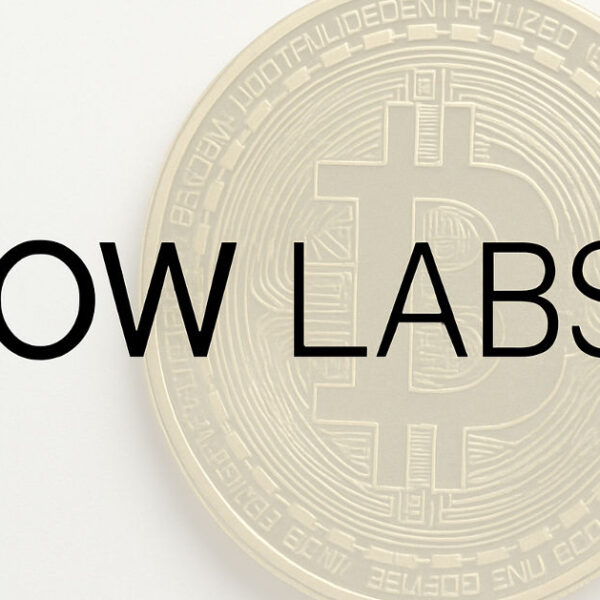How Bitcoin Offers A Speed Advantage For Driving Shareholder Value
Bitcoin is the first instantiation of digitally scarce capital—allowing companies to raise, deploy, and prove value faster than ever before.
In legacy finance, capital formation is a slow, friction-filled process. A company raises funds, deploys them over months or years into infrastructure, products, or real estate—and only then begins the long wait to see whether the capital generated a return.
This lag isn’t a bug. It’s a defining feature of the traditional system, built on physical constraints, regulatory overhead, intermediated trust, and long feedback loops. That system has not changed—until now.
Bitcoin is fundamentally different. For the first time, companies have access to capital that is digital, scarce, and verifiable in real time. It allows for a corporate capital cycle that doesn’t take years. It takes 24 hours.
Legacy Capital Formation: Built for Friction
In the legacy model, capital formation is expensive, slow, and often opaque. It requires multiple layers of intermediation and a high tolerance for time risk.
Capital is typically raised through equity or debt offerings, which are subject to underwriting, roadshows, board approvals, and investor due diligence. Once funds are secured, they’re often deployed into physical infrastructure, human capital, or R&D—all of which require multi-year timelines to execute and mature. ROI is projected, not immediate. Outcomes are contingent on operational success and macroeconomic conditions.
Investors, meanwhile, are left waiting—quarter to quarter—for signs of progress, often relying on opaque metrics, delayed reporting, or narrative guidance from executives.
Even for high-performing companies, the cycle between raise and return is measured in years, not days.
This model worked in a world where capital couldn’t move faster than its physical constraints. But in a digital age, the question is whether such delay is still necessary—or defensible.
The Bitcoin Treasury Model: Raise on Monday, Deploy by Tuesday
Companies holding Bitcoin on their balance sheet are already proving a radically compressed alternative.
In this model, capital is raised on a Monday—through a convertible note, equity issuance, or other capital market instrument. By Tuesday morning, the proceeds are converted into Bitcoin. That same day, reserves are verifiably posted on-chain, and shareholder value is updated in Bitcoin terms.
This process removes intermediaries. It eliminates construction or execution risk. It creates instant, observable movement of capital—and ties that movement directly to long-term strategic value through Bitcoin’s monetary properties.
For financial leaders, this model solves several pain points:
- Time lag between raise and deployment is eliminated
- Reporting opacity is replaced by proof-of-reserve transparency
- Shareholder uncertainty is answered with real-time asset accumulation
- Dilution narratives are counterbalanced by measurable BTC/share growth
This cadence—raising, deploying, and proving value within 24 hours—does more than accelerate capital formation. It unlocks a new relationship between corporate action and market trust.
Why Bitcoin Enables This
Bitcoin is not just an asset. It is an entirely new substrate for capital. No other form of reserve asset offers:
- Digital nativity: Bitcoin moves and settles like software—globally, 24/7
- Absolute scarcity: With 21 million units, it introduces a hard cap on monetary supply
- Instant verifiability: Reserves can be publicly proven on-chain, without intermediaries
- Neutral settlement: Bitcoin does not rely on any central party or jurisdiction to function
This combination is what makes Bitcoin digital capital. It is not a synthetic product or a derivative of another asset. It is the capital itself—programmable, transferrable, and incorruptible.
That is why Bitcoin enables a capital model no other asset can match.
Speed as Strategy
Compressing the capital cycle isn’t just operationally efficient—it’s strategically powerful.
With Bitcoin, capital deployment becomes a public signal. It shows conviction. It’s auditable. It builds trust. It removes guesswork and replaces it with verifiable shareholder alignment.
Historically, treasury was a back-office function: protect cash, preserve yield, minimize risk. Today, a Bitcoin treasury allows companies to drive capital markets strategy from the balance sheet.
This model resonates because it addresses investor needs directly:
- Proof, not promises
- Scarcity, not dilution
- Velocity, not delays
It turns treasury into a tool for compounding confidence.
The CFO’s New Calculus
For financial leaders, the question is no longer “Where do we invest over the next five years?” but rather, “How do we use capital today to increase provable shareholder value—now?”
That change in mindset reflects a deeper shift in how capital is understood: not as something locked into long-term plans, but as something that can move, signal, and compound in real time.
Bitcoin enables that shift. It allows companies to operate not on forecasts, but on actions.
Conclusion: The Rise of Capital Without Delay
Legacy capital models were built for an analog world—slow, permissioned, and dependent on intermediaries. Companies moved cautiously because capital couldn’t move quickly.
Bitcoin rewrites that architecture. It introduces capital that is digitally scarce, globally liquid, and verifiable on arrival.
With a Bitcoin treasury, companies no longer need to wait to prove strategic alignment. They can act and validate in the same cycle. They can move with speed and transparency. They can raise on Monday, deploy on Tuesday, and show their shareholders exactly what they’ve done.
This is not a gimmick. It is a serious evolution in financial operations—and the companies that recognize it early will lead the next phase of capital market innovation.
Disclaimer: This content was written on behalf of Bitcoin For Corporations. This article is intended solely for informational purposes and should not be interpreted as an invitation or solicitation to acquire, purchase, or subscribe for securities.














